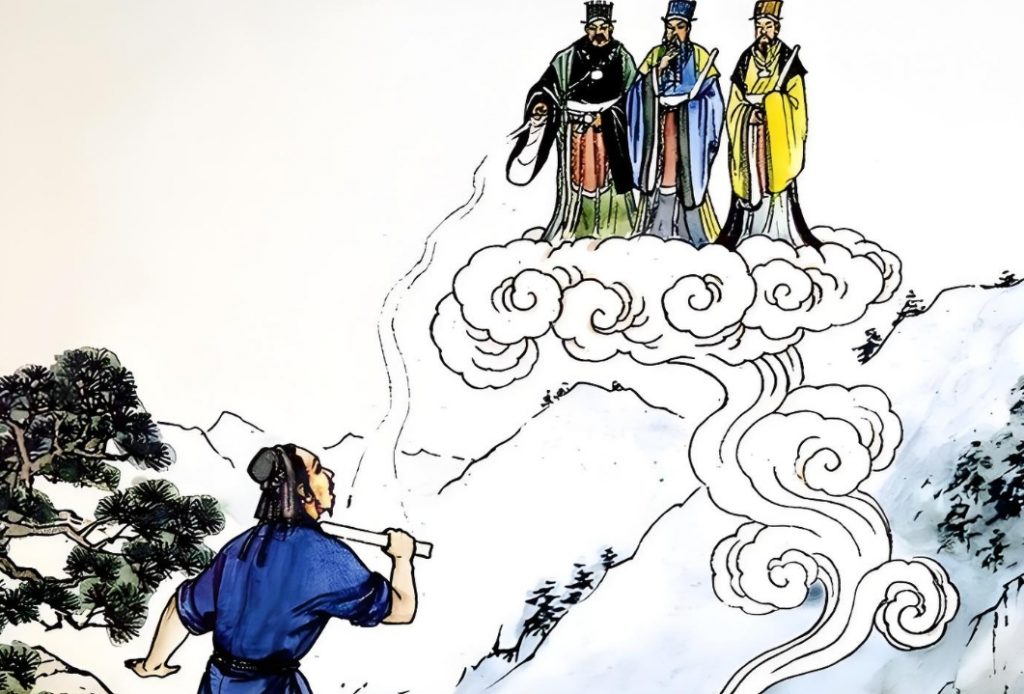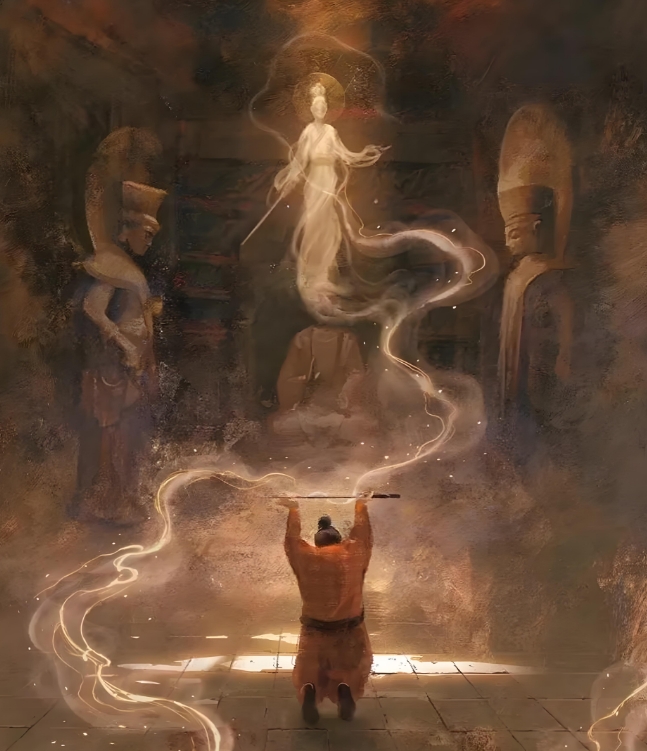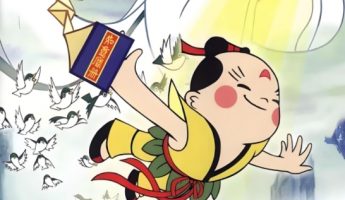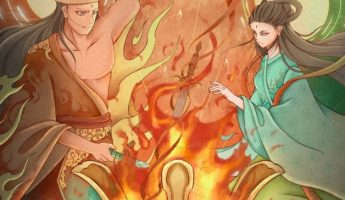There is a folk saying that goes, ‘If you raise your head three feet, there will be a deity.’ Three feet is equivalent to a distance of one meter. The meaning of this saying is that there will be a deity watching over you three feet above your head, so don’t do anything wrong. In folk mythology, immortals not only exist in heaven, but also in the mortal world.
Compared to the great gods in mythology who soar above the Thirty Six Heavens, the immortals on earth appear much closer. Do you know which immortals are referred to in the myth of “raising their heads three feet to have gods”?

San Tai Shen Jun
Introduction: The Three Heavenly Kings are deified from the constellations in the sky, with a total of six stars, divided into the Upper Stage, Middle Stage, and Lower Stage. The Taoist sect deifies them into three Star Kings: the Upper Stage Void Essence Kaide Star, the Middle Stage Six Chun Sikong Star, and the Lower Stage Qu Sheng Siku Star.
Duties: They are in charge of the good and evil, wealth, poverty, and lowly things in the world, located above people’s heads, recording their sins, and taking away their records based on their good and evil deeds, with twelve years as one record.
Wandering God
Ri You Shen: In the mythological novel “Fengshen Yanyi”, when Jiang Ziya conferred the title of “Eight Main Gods”, Wen Liang, a subordinate of Tai Sui, was appointed as the Ri You Shen. The God of Touring is responsible for patrolling the world during the day, recording the good and evil deeds of ordinary people. Those who do good will receive blessings, while those who do evil will be punished.
Night Wandering God: In the novel “Fengshen Yanyi”, Qiao Kun is crowned as the Night Wandering God. In ancient mythology, the Night Wandering God was a group of sixteen small people who guarded the night for the Heavenly Emperor. Later, he evolved into a tall and powerful deity responsible for patrolling the world at night. Like the Day Wandering God, he recorded the good and evil deeds of ordinary people at night as a basis for rewards and punishments.

Body Six Gods
Introduction: Taoism believes that all parts of the human body are inhabited by gods, and the six gods in the body are “heart, lung, liver, kidney, spleen, and gallbladder”. The Taoist scriptures have clear records of their names and shapes, with the name “Dan Yuan” for the heart god, the character “Shouling” for “Shouling”, and a length of nine inches; The name of the lung god is Haohua, with the character ‘Xu Cheng’ and a length of eight inches; The name of the liver god is Longyan, with the courtesy name Sheming and a length of seven inches; The name of the kidney god is Xuanming, with the courtesy name ‘Nurturing’ and a length of three inches and six minutes; The name of the Spleen God is often present, with the courtesy name Soul Court and a length of seven inches and three minutes; The god of courage is named Longyao, with the courtesy name Weiming and a length of three inches and six minutes.
Duties: These deities are closely related to the health and behavior of the human body. When a person commits evil, the body deity will also report the relevant situation to the Three Officials.
Three Corpse Gods
Introduction: The Three Corpse Gods, also known as Three Insects and Three Pengs, originated from Taoist terminology. The Upper Corpse God is called Pengju and resides on the human head; The name of the god of corpses is Peng Di, who lives in the belly of humans; The god of corpses is named Peng Jian and resides on human feet.
Duties: Shangshen will cause dizziness, blurred vision, and tooth loss, leading to desires and confusion in thoughts; The God of the Dead conquers the five organs of the human body; The God of the Lower Corpse commands the lower gate to scratch, the Five Pure Ones to move bravely, and lust cannot be restrained. The “Three Corpses” represent the three desires of human selfishness, appetite, and male and female desires, and will ascend to the Heavenly Cao on Gengshen Day to speak of human sin.



